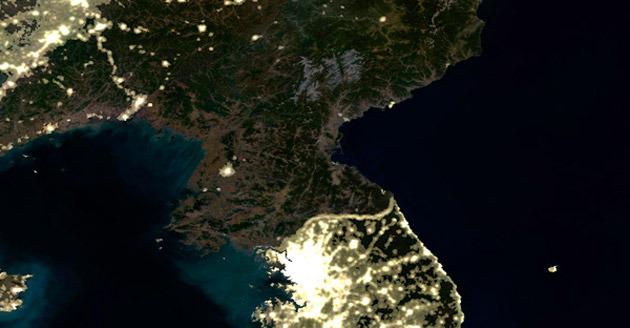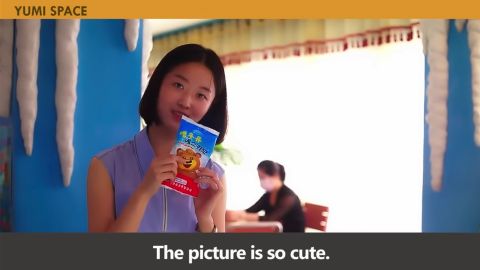By Evi Tsakali,
It was in elementary school when I was first shown – in Geography class – a satellite photo of North Korea by night, completely dark, compared to its neighboring countries, that I was immediately intrigued by the world’s most isolated country; and it would continue to intrigue me during my junior and senior high school years, when I would contemplate on the motion “Should democracy be imposed?” during debate practice, or when I would hear the delegates of the DPRK in the MUN conferences that I loved so much make statements like “you call it isolation, we call it a bubble of protection” (because when you have to represent a member-state whose stance does not abide at all with your beliefs, you have to get creative).

Now, as a jurist and political scientist in the making, the fascination of my 11-year-old self with this cloaked-in-the-dark state became backed by facts; North Korea is notorious for frequent blackouts and electricity shortages and only about 26% of the population has access to electricity, according to 2019 estimates from the CIA World Factbook. Nevertheless, the North Korean leadership strives to convey the opposite to the rest of the world; not only regarding the country’s electricity shortages but also its image in general. In fact, DPRK officials have been trying rather too hard to prove to the international community how North Korea detains very advanced technology and military supplies, or how its citizens enjoy scientific progress and overall prosperity; all of these elements carefully demonstrated in hand-picked clips that are released for the attention of international media outlets. Long-term propaganda, just like the act that MUN delegates put on display, needs creativity as well. North Korea has apparently tried to Gen Z up its game a bit, by proposing a whole new tool in its communication strategy; influencers.
YuMi and Song A are not your typical DPRK residents
Probably one of the most prominent North Korean accounts out of the several that have been popping out during the past year or two, featuring North Koreans who claim to share their everyday lives is that of YuMi. The young woman, who launched her YouTube channel in June, is otherwise like your typical western influencer; dressing all nice in flattering outfits, flashing a wide smile, and eating fancy food in (what seems like) fancy places. In one of her videos, one can see her enjoying some ice cream while being very persistent in repeating how good it is, how the ice cream place is so nice, what a vast variety of flavors it has, and – of course – giving the credits of the abundance of ice cream and other delicacies to the supreme leader. However, with a closer look – and ignoring the rest of that parody of a video – one can notice tell-tale signs that the lives displayed are far from the norm for the impoverished millions under the dictatorship of leader Kim Jong Un.

According to Park Seong-Cheol, a researcher at the Database Centre for North Korean Human Rights, YuMi’s videos “look like a well-prepared play” scripted by the North Korean government. It is Ha Seung-hee, a research professor of North Korean studies at Dongguk University who highlights the fundamental, fact that, in North Korea, connecting with the outside world is an impossible thing for a resident, which makes the very existence of such accounts even more suspicious.
YuMi’s channel is not the only indicative example though: an 11-year-old who calls herself Song A made her YouTube debut in April 2022 and has already gained more than 20,000 subscribers. Sitting in her comfy child’s bedroom with stuffed animals, pink curtains, a globe, books, and everything, she explains how her favorite book is Harry Potter… in a country where foreign culture is strictly forbidden, especially if it originates from western nations; and speaking in fluent English, with a distinctive British accent.

Towards a rebranding
You may wonder, what is the endgame of this influencer scheme? If I had to sum up this propaganda strategy in a single word, that would be “relatability”; these YouTubers are most likely linked to government officials (hence the British accent of Song A) orchestrating a campaign aimed at rebranding the country’s international image as a more relatable – even tourist-friendly place (which would come in handy considering the economic toll of the pandemic for the national, already battered, economy). “North Korea is striving to emphasize that Pyongyang is an “ordinary city,” Park says, adding that the leadership “is very interested in how the outside world views them.”.
On another note, it is important to affirm that this topic should be delegitimized as an issue for discussion because of the obvious (almost comic) nature of the propaganda; the question is not whether the content in hand is a product of propaganda… that is taken for granted; the point is how we perceive this content, how we need to learn to perceive it, in order to further study North Korea and get the best grasp of the internal situation that we can.
References
-
They eat ice cream and read ‘Harry Potter,’ but these North Korean YouTubers aren’t what they seem. edition.cnn.com. Available here
-
In North Korea, an influencer might also be a propagandist. koreajoongangdaily.joins.com. Available here




